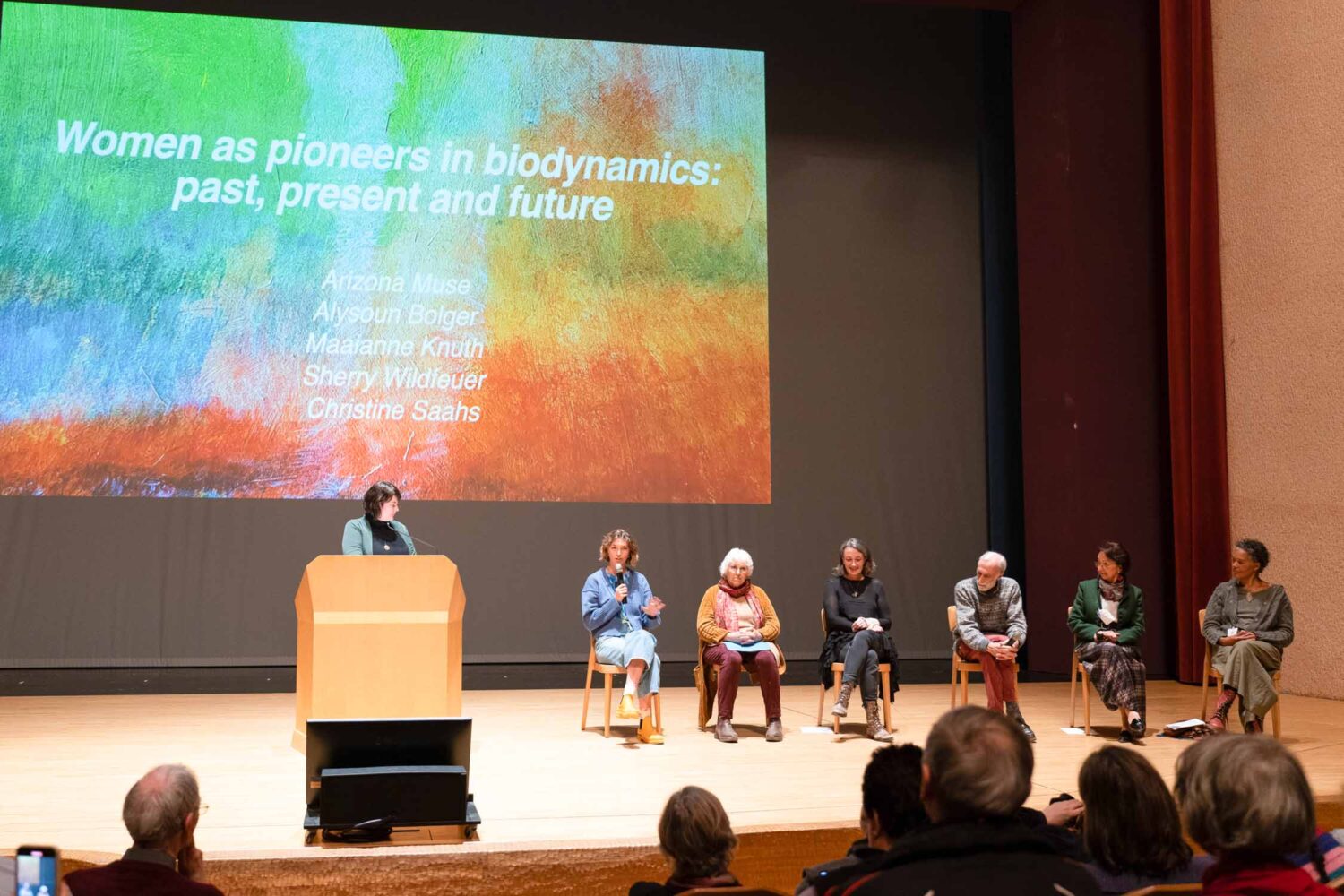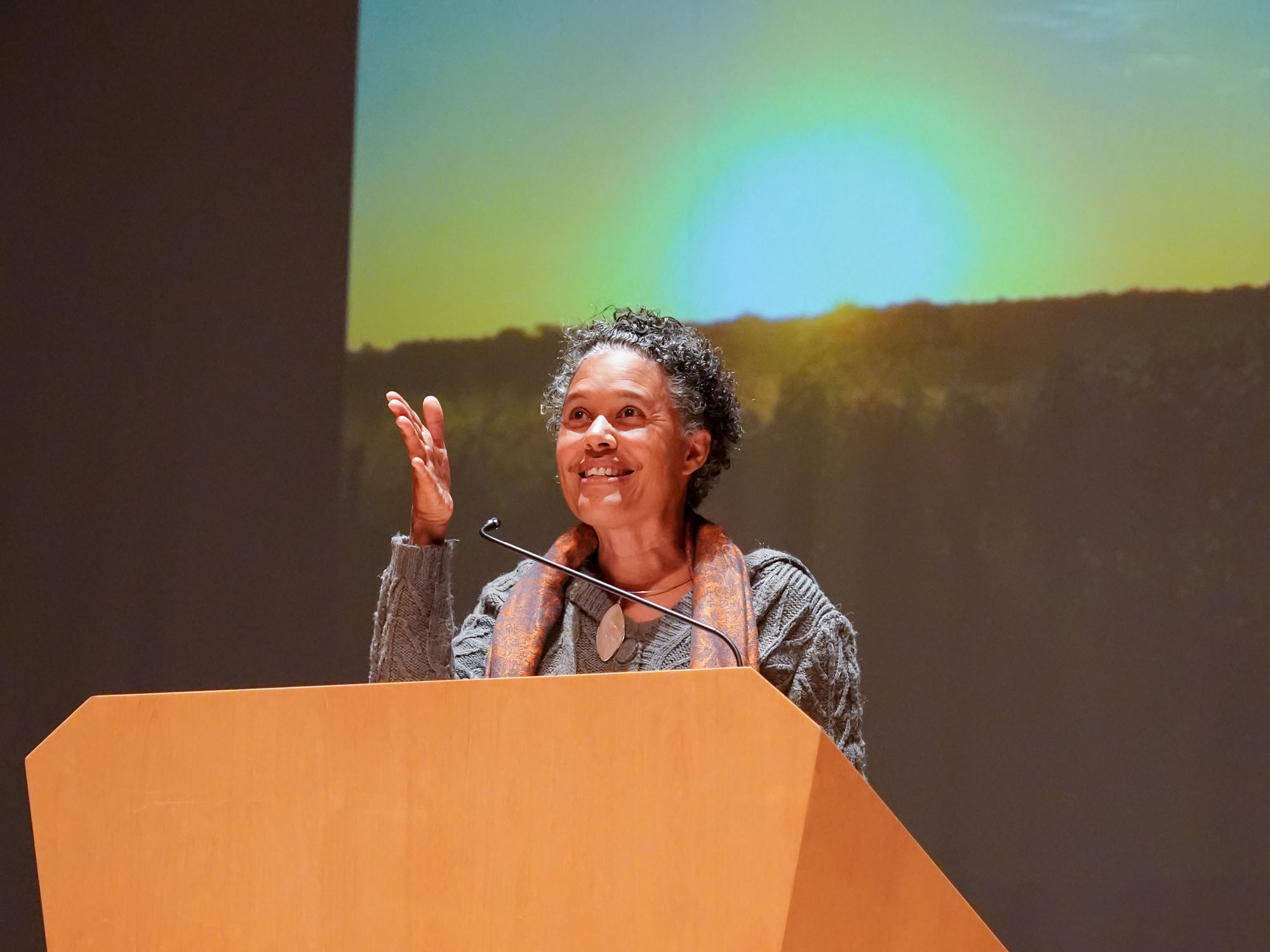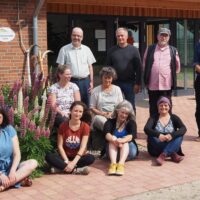At the Biodynamics conference in February, there was a panel discussion entitled, ‹Women as Pioneers in Biodynamics: Past, Present, and Future›, which featured Alysoun Bolger, Arizona Muse, Christine Saahs, Sherry Wildfeuer, and was moderated by Lin Bautze. Maaianne Knuth shared her thoughts and experiences about Biodynamics and Women in Africa.

My name is Maaianne, and I’m from the Kufunda Learning Village. I’m of Danish and Zimbabwean descent. My father was Danish, a librarian, and my mother, a journalist, was Zimbabwean. I spent the first years of my life in Denmark, and I had nothing to do with farming at all. I came to Biodynamics through my commitment to social justice and healing of social divides as I experienced it between the global North and the global South. And as you know, out of that impulse, I created Kufunda Learning Village, which is a village where we are learning our way into the future and learning our way into what it takes to create a healthy and vibrant community.
For many years we would really just work with the community aspects, and we learned very quickly that to build generative communities, we needed generative human beings. And so a big part of the work was around personal healing and reconnecting with roots and developing confidence and beginning to dream, and – I almost feel like – remembering the future through remembering the past. I remember people chatting with old, old, rural people and being like, «Oh, they used to heal broken bones like this. They used to do this and that.» So this inspiration would arise and then more possibilities would open.
As we, who began Kufunda, grew a bit older, we had children, and we were like, «Are we going to send our children to those schools that somehow feel like they’re a part of the problem? No.» And so we founded a Waldorf-inspired school, and then through Waldorf, we found our way to Biodynamics. These two went together – healing and community healing with the land and bringing a healing education. And it’s not just for Kufunda. We work with people from around Zimbabwe bringing our processes and supporting them in finding their way.

So we’re relatively new in Biodynamics. I feel like the impulse only fully landed when I came here four years ago. We started, but really something entered in at that moment. But it entered, and we follow the golden thread that shows us the way. We listen and we follow. Last year we hosted the African Biodynamic Trainer’s meeting, and we met with others who were young in Biodynamics but big in will and inspiration for this way of farming to grow and spread on this vast continent. Some people call it the motherland.
So that’s my introduction. I wanted to say a few things about women in Zimbabwe, as I think in much of Africa, the woman is still seen as less than the man. Much, much, much less than the man. The girl child… The widow is at the bottom of the rung. I don’t think this was the case originally. I think, again, colonization and modernity have distorted different roles, but this is now what we have, and yet as I think you all know, the African woman is the backbone. She is the backbone of the family. She is the backbone of the community. She’s the backbone, I would say, of Zimbabwe, but I would go as far as to say many African countries. She’s the smallholder farmer in most rural communities where the men have left for the cities. She’s the one who ekes out her living and puts what she earns and makes into the education of her children. We know Muhammad Yunus, who pioneered the idea of microloans to women, because women invest in the future. She is the future of the African continent, as far as I’m concerned. And I don’t have so many qualms about men and women, and I realize that we are living in a new world, but I also think that there’s such a stark reality happening in Africa that we have to acknowledge, and the African woman needs to be supported because she is magnificent – nothing less. She really is. Commitment, dedication, will. She just keeps going. My husband was quite scared of my grandmother for a long time. She was up at five in the morning working her land, looking after her cows. She was poor by modern standards. And she was so rich in so many other ways.
I want to speak a little bit to the future. Many here, maybe not maybe I can’t assume, but many might assume that the African or other Global South women with little education, for them to enter in a big way into Biodynamic farming might not really be possible. Maybe it’s too complex. Maybe it’s too much for them. Maybe. Maybe. Right? But what we’re seeing is that, with very little support, in community, we are beginning that journey in Zimbabwe, and we’re seeing the excitement and the gift of rural women. It’s not a whole lot yet, but many that are coming on board, that are getting excited, that want the preparations, are seeing the differences. And so I’m wondering, could we imagine the future of Biodynamic farming to be one with smallholder farmers and smallholder women farmers across the world, deeply engaged in the farming that reconnects them with their roots, with the land, and with each other? Can we imagine that? Because if we can imagine it, I really believe that then we can. We can do whatever it takes to make it happen.
In the parable of the laborers in the Vineyard, Christ said the first will be the last. And so my question here is: What is our role here, in a way as the first – at the risk of being arrogant – to turn towards and enable the many behind us to join and to come on board and to be enriched, for us to be enriched beyond measure by what they will surely bring to the fold? This is my question. And so for Kufunda, and perhaps for Africa and maybe more, the continuation of training, education, learning, collaboration is key. How can we innovate so that we can actually include the smallest and grow in that way? Thank you.
Title image Maaianne Knuth speaking during the Agricultural Conference 2023. All photos: Xue Li













